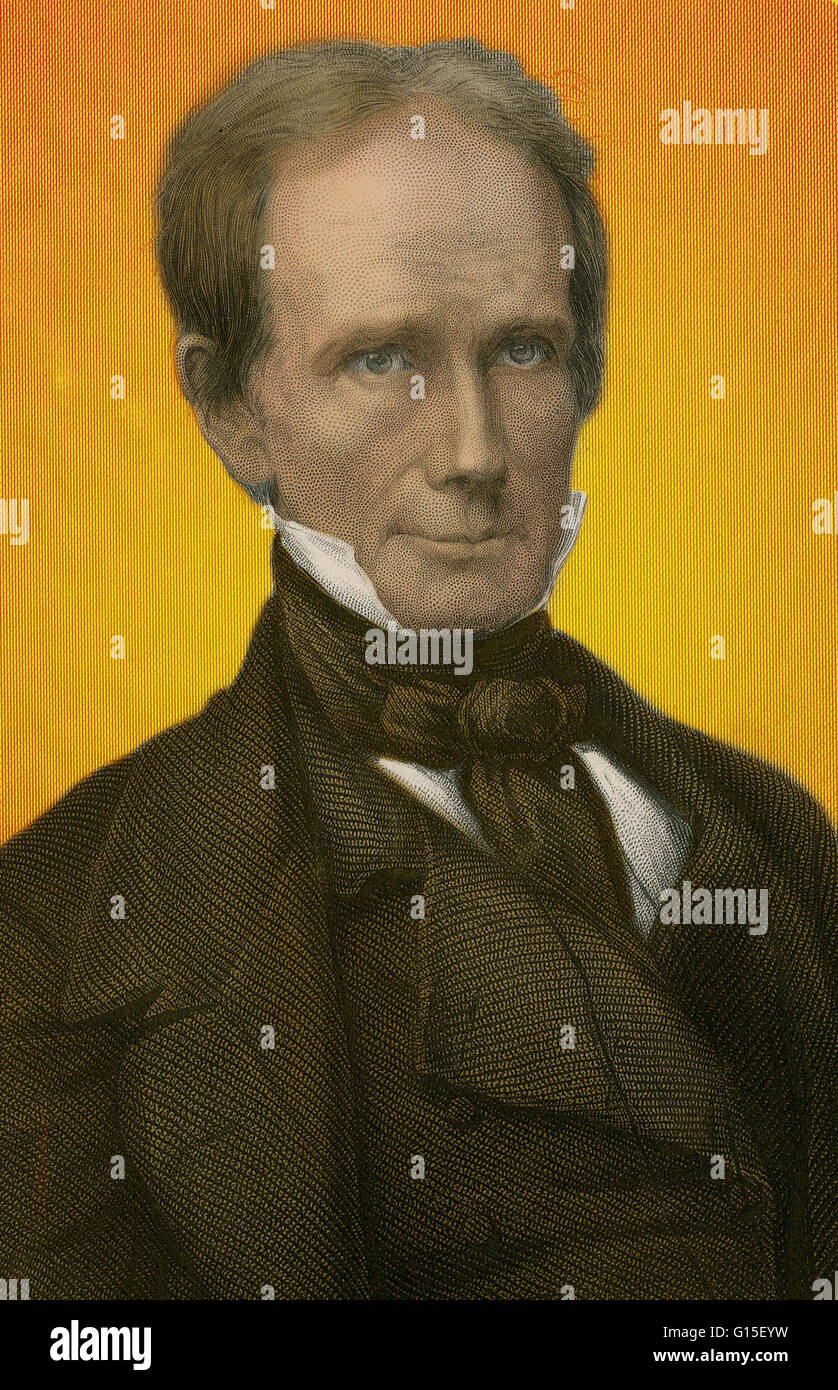Henry Clay, Sr. (April 12, 1777 - June 29, 1852) was an American planter, statesman and orator who represented Kentucky in both the Senate and the House of Representatives, where he served as Speaker. He also served as Secretary of State from 1825 to 1829

Image details
Contributor:
Science History Images / Alamy Stock PhotoImage ID:
G15EYWFile size:
5.6 MB (741.3 KB Compressed download)Releases:
Model - no | Property - noDo I need a release?Dimensions:
1122 x 1739 px | 19 x 29.4 cm | 7.5 x 11.6 inches | 150dpiPhotographer:
Photo ResearchersMore information:
This image could have imperfections as it’s either historical or reportage.
Henry Clay, Sr. (April 12, 1777 - June 29, 1852) was an American planter, statesman and orator who represented Kentucky in both the Senate and the House of Representatives, where he served as Speaker. He also served as Secretary of State from 1825 to 1829. As a leading war hawk, he favored war with Britain and played a significant role in leading the nation to war in 1812. He was the leading proponent of the American System, fighting for an increase in tariffs to foster industry in the United States, the use of federal funding to build and maintain infrastructure, and a strong national bank. Clay opposed the Mexican-American War and the "Manifest Destiny" policy of Democrats. Dubbed the "Great Compromiser, " he brokered important compromises during the Nullification Crisis and on the slavery issue, especially in 1820 and 1850, during which he was part of the "Great Triumvirate" or "Immortal Trio, " along with his colleagues Daniel Webster and John C. Calhoun. He was viewed as the primary representative of Western interests in this group. In 1957, a Senate Committee selected Clay as one of the five greatest U.S. Senators, along with Daniel Webster, John C. Calhoun, Robert La Follette, and Robert Taft. Abraham Lincoln, Whig leader in Illinois, was a great admirer of Clay, saying he was "my ideal of a great man." Lincoln wholeheartedly supported Clay's economic programs. He died of tuberculosis in in 1852 at the age of 75. Clay was the first person to lie in state in the United States Capitol.